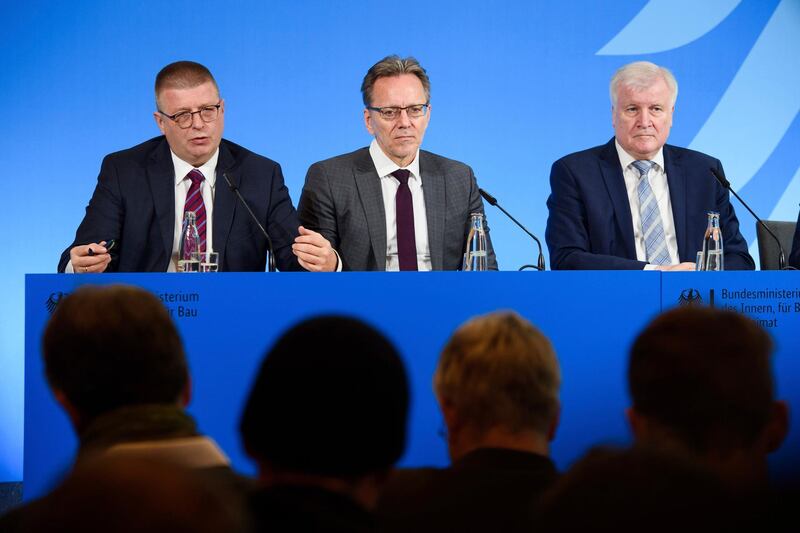Germany is to expand efforts to rid its public services of far-right supporters after fascist sympathisers were found to be worryingly prevalent in the military and police.
It is part of an overhaul of its approach to far-right extremism by employing hundreds more dedicated officials in the wake of several high-profile incidents in the last year.
Interior minister Horst Seehofer said some 600 new police and intelligence positions are to be created, adding that recent “terrible isolated incidents” have shaken Germany’s confidence.
“This is a very big challenge for the internal security of Germany,” he said. The move will not affect efforts against other sorts of crimes such as Islamist extremism.
"The fight against right-wing extremism should have been given this priority earlier," said Mr Seehofer. "That is also true."
He referenced an October attack on a synagogue in the city of Halle where two people were killed and the murder in June of a politician who had welcomed Chancellor Angela Merkel’s pro-refugee policy.
"I'll never forget a young citizen in Halle calling through the silence that 'you all can't protect us,’” Mr Seehofer told a press conference.
"As a consequence of Halle, we want to confirm to the public: Many steps are being taken."
Thomas Haldenwang, president of Germany’s domestic intelligence service BfV, said there would be greater efforts to ensure far-right extremist do not work for public services such as the police or military.
Earlier this month it was revealed that an elite commando was to be suspended for alleged links to far right groups while another two soldiers were accused of flashing Nazi salutues.
"The 'new right' will be more intensively scrutinised," he said in reference to online extremist networks.
“It's a topic for the virtual world, as well as the real world."
There are some 12,000 people in Germany with far-right views who are considered to be potentially violent.
Holger Muench, who heads up Germany’s federal criminal office, warned that the two far-right attacks earlier this year “confirmed everything in the worst way possible”.
"Violence is increasing, propaganda is increasing … threats on the internet are creating a climate of fear,” he said.
But he warned that about half of far-right crimes are committed by suspects not already known to police, including the Halle synagogue attack.








